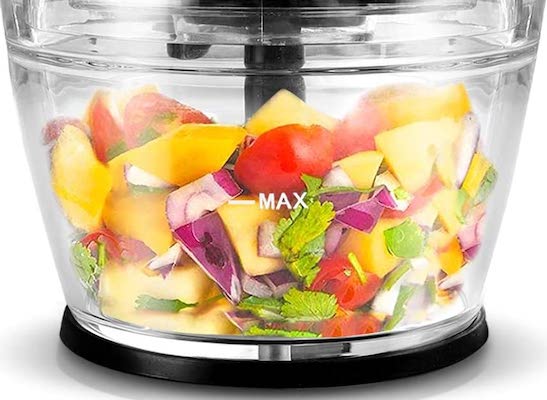Since the 1960s, Bisphenol A (BPA) has been extensively employed in the production of durable plastics like polycarbonate plastics and epoxy resin. These materials are commonly found in various everyday items such as food and beverage packaging, dental fillings, paints, and eyeglass lenses. However, the leaching of BPA into processed or stored foods from containers made with this chemical has sparked concerns about its potential impact on human health, prompting the development of BPA-Free Food Processors to address these worries.
The Health Risks Associated with BPA Exposure
Research indicates that BPA exposure can have detrimental effects, particularly on vulnerable populations such as fetuses, infants, and children. Studies have linked BPA exposure to adverse effects on the brain and prostate development in these groups. Furthermore, BPA is classified as an endocrine disruptor, meaning it can interfere with hormone function in the human body. Specifically, it has been associated with hypertension and can interact with estrogen hormones, potentially impacting fertility, reproductive health, and the endocrine system.
Choosing Healthier Alternatives: BPA-Free Food Processors
In response to growing concerns about BPA exposure, manufacturers have introduced BPA-free food processors. These appliances offer the same functionality and convenience as their BPA-containing counterparts but without the associated health risks. When shopping for a food processor, look for products labeled as BPA-free to ensure a safer food processing experience.
Protecting Your Health: Tips for BPA-Free Food Processing
If you’re concerned about exposure to BPA, there are several protective measures you can take:
- Choose BPA-Free Products: Opt for products labeled as BPA-free whenever possible. Manufacturers are increasingly producing BPA-free alternatives, and these labels indicate that the product does not contain this chemical. Be cautious with plastics marked with recycling codes 3 or 7, as they may still contain BPA.
- Reduce Consumption of Canned Foods: BPA is often found in the lining of canned foods, where it can leach into the contents. Limiting your consumption of canned foods can help reduce exposure to this chemical.
- Avoid High Heat Exposure: Refrain from exposing polycarbonate plastics to high temperatures, such as those found in microwaves or dishwashers. Heat can break down these plastics over time, increasing the likelihood of BPA leaching into food or beverages. Instead, opt for glass, porcelain, or stainless steel containers for hot foods and liquids.
Embracing a Healthier Kitchen with BPA-Free Food Processors
By investing in BPA-free food processors and adopting mindful food processing practices, you can safeguard your health and well-being. Prioritize products that prioritize your safety and make informed choices to create a healthier kitchen environment for you and your family.
Array
